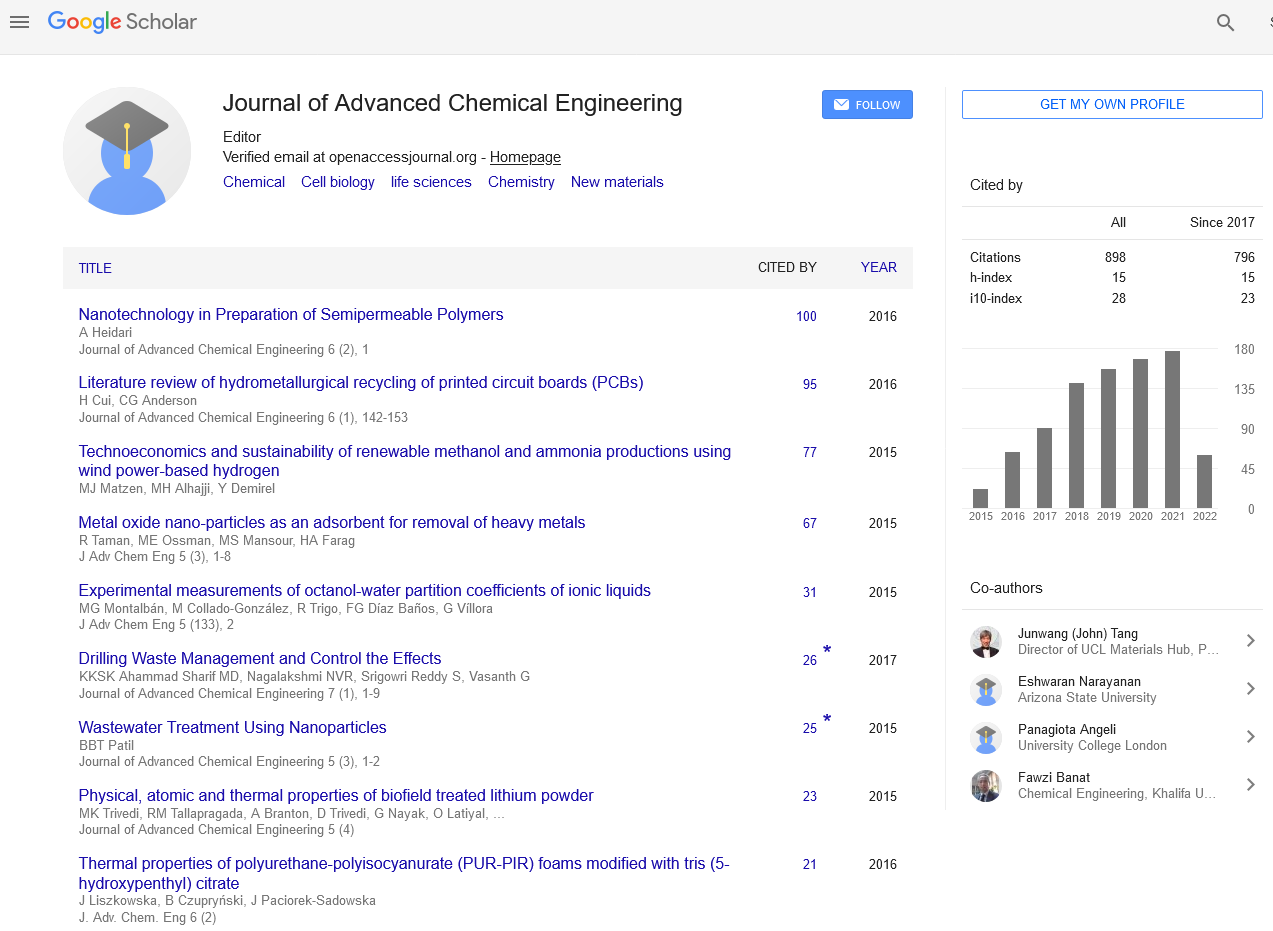Indexed In
- Open J Gate
- Genamics JournalSeek
- Smithers Rapra
- RefSeek
- Directory of Research Journal Indexing (DRJI)
- Hamdard University
- EBSCO A-Z
- OCLC- WorldCat
- Scholarsteer
- Publons
- Geneva Foundation for Medical Education and Research
- Google Scholar
Useful Links
Share This Page
Journal Flyer

Open Access Journals
- Agri and Aquaculture
- Biochemistry
- Bioinformatics & Systems Biology
- Business & Management
- Chemistry
- Clinical Sciences
- Engineering
- Food & Nutrition
- General Science
- Genetics & Molecular Biology
- Immunology & Microbiology
- Medical Sciences
- Neuroscience & Psychology
- Nursing & Health Care
- Pharmaceutical Sciences
Study of crosslinked cellulose polymer composite electrolyte separators for Li-air fuel cells
Joint Event on 8th Edition of Biopolymers & Bioplastics & Polymer Science and Engineering Conferences
October 15-16, 2018 | Las Vegas, USA
Gwomei Wu and SJ Lin
Chang Gung University and Chang Gung Memorial Hospital, Taiwan
Taiwan Textile Federation, Taiwan
Posters & Accepted Abstracts: J Adv Chem Eng
Abstract:
Everyone is concerned about the problems of the serious global climate changes and the over-consumption of natural resources. It is thus important to develop high-efficiency green energy materials for electrical power storage devices. A safer and more efficient energy storage system is highly desired. The lithium-air battery uses air cathode and can convert its anode into lithium peroxide. The per-weight capacity can be nine times higher than a traditional battery. Therefore, we aim to develop highly reliable nano-cellulose polymer electrolytes for Li-air fuel cells. We investigate natural cellulose materials for composite polymer electrolytes, which can be used in high energy density metal-air batteries, such as lithium-air, zinc-air, and aluminum-air. The cathode utilizes oxygen from ambient air as a reactant in the electrochemical reaction rather than storing heavy active materials. However, poor ionic conductivity and low mechanical integrity can restrict the electrolyte separator from practical applications. It has been proposed to improve the high-temperature resistance of natural cellulose and polybutylene terephthalate polymer composite separators. The crosslinked cellulose materials were designed to enhance the ionic conductivity to 10-3 S/cm vs Li+ and 10-2 S/cm vs OH- or H+. The thermal shrinkage, dimensional stability and safety, and thermal degradation activation energy >150 kJ/mol were also improved. In addition to the carbon porosity, the surface area and structure also affects the catalysis of the lithium-air battery system. The novel porous carbon electrode has been prepared and applied to the air electrode for the metal-air battery system.The main objective of this study has been to develop a novel natural nano-cellulose polymer composite electrolyte system for the growing and challenging battery industry. The important cell testing results can be presented and further discussed.
Biography :
Gwomei Wu has completed his PhD from the University of Delaware, USA and had been a visiting professor at the University of California at Los Angeles, USA. He is in charge of the Electro-Optical Engineering Laboratory of Chang Gung University in Taiwan. He has published more than 50 papers in reputed journals and served as technical consultants for a broad range of industrial companies. This study was supported in part by the Ministry of Science and Technology under research grants MOST105-2221-E182-059-MY3 (NERPD2F0663) and Keelung Chang Gung Memorial Hospital CMRPD3G0062.
E-mail: wu@mail.cgu.edu.tw


